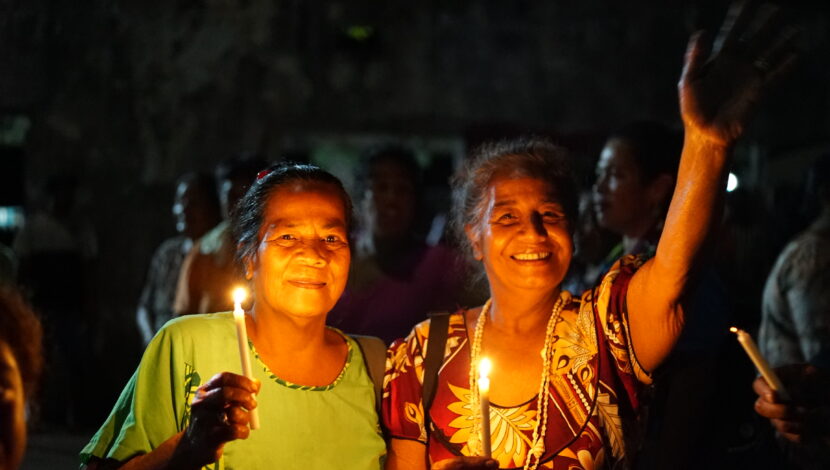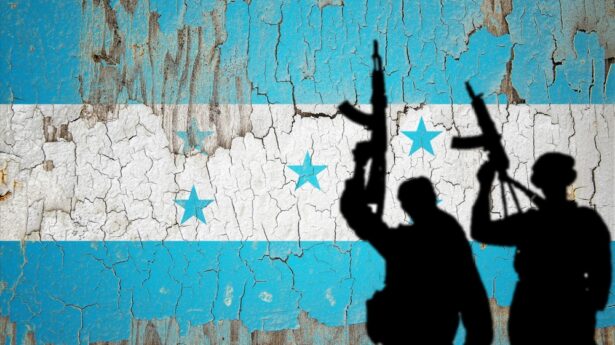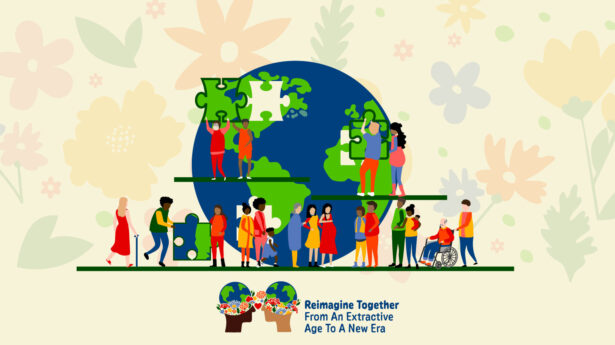The Unitarian Universalist Service Committee advances human rights through grassroots collaborations.
From Displacement to Resilience: The Banaban Journey

By Rae Bainteiti on January 5, 2024
The Banaban community, currently inhabiting Rabi Island—located in northern Fiji—has historically faced severe oppression and displacement at the hands of major nations in Europe and Asia. The Banaban people have withstood this injustice for generations and are currently mobilizing in defense of their culture, livelihoods, and right to self-determination. Rae Bainteiti, an activist with UUSC partner the Banaban Human Rights Defenders Network (BHRDN) recently penned an essay about the experiences of the Banaban people currently and their efforts for justice in the face of extreme oppression and displacement.
As a young boy growing up on Rabi Island (in Fiji), I was always fascinated by a particular monument that stood proudly in the heart of Nuku, the administrative center of the island. It is the only monument that can be found on the island. The monument was dedicated to Albert Ellis, the man who discovered A-grade phosphate rock on Banaba in the 1900s.
As I grew older, my admiration for the monument turned into anger. Ellis’s discovery, while significant, led to the dispossession and displacement of our Banaban communities from their ancestral home island, Banaba, now part of modern-day Kiribati, to Rabi, Fiji. This island was purchased with the royalties from the phosphate that was once a curse to our people.
Being a fourth generation Banaban, I grew up listening to the stories our elders would tell. They spoke of a harrowing journey spanning over 2,000 kilometers (or 1,242 miles), undertaken during the cyclone seasons. It was a journey filled with hardship and resilience, a journey that some would even call a genocide. But it was by the grace of God that the 1,003 Banabans who embarked on this journey aboard the MV Triona made it safely to Rabi on December 15, 1945.
Every year, on December 15, we the Banabans in Rabi and across the diaspora, would gather. It was a day of remembrance, a day of thanksgiving. We would recall the stories of our displacement through storytelling, dancing, worship, and sports. The air would fill with a mix of tears, anger, and grief as the elders recounted their experiences.
In 2023, however, the gathering felt different. Many of the elders who had made the journey on the MV Triona from Banaba to Rabi were no longer with us. Their stories, their memories, their experiences, live on in us, a testament to their resilience and strength. As we continue to navigate our way in this world, we carry their legacy with us, a constant reminder of our past and a beacon guiding our future.
But where has 78 years of displacement and dispossession taken our communities so far? This question weighed heavily on my mind as we celebrated 78 years as a minority race here in Nuku. While we are breathing and thriving in our new home island, we face a multitude of challenges, from discrimination, corruption, loss of culture, climate change and economic struggles to fears about the potential return of phosphate mining on our ancestral homeland and possible occupation of our ancestral land due to development.
Our current circumstances highlight the urgent need for increased recognition of our rights and support for our ongoing pursuit of justice. This includes the reinstatement of our Rabi Council of Leaders, a promise made by the incumbent Coalition government.
As a young boy, I was once fascinated by Albert Ellis, the man who discovered phosphate on Banaba. Fast forward, I am now in my early thirties and reflecting on the 78 years that have passed, my fascination has turned into a sobering realization of the journey we, as a community, have undertaken. Our rights have been violated and our community is in need of healing. The path we have travelled has been long and difficult, but it has shaped us into who we are today and if there was a way to rewrite our narratives, it must start today.
Image Credit: Katja Neef

